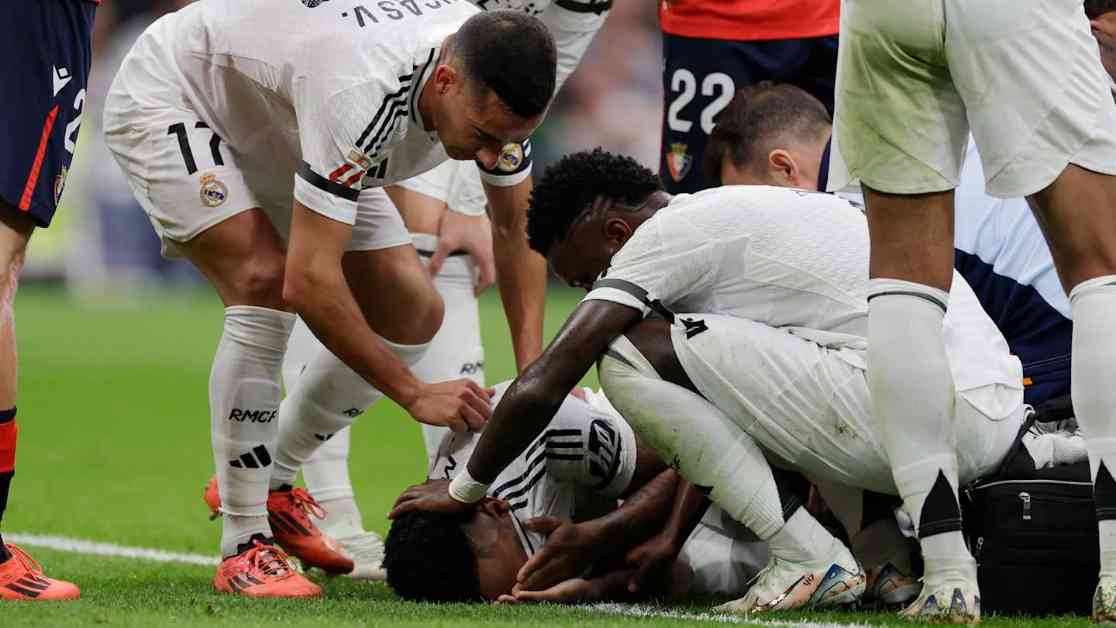Real Madrid is currently facing a challenging period as they grapple with a string of cruciate ligament injuries affecting several key players. The recent injury to Éder Militão, a crucial member of the team’s defense, has shed light on the alarming frequency of such injuries within the squad. Over the past fourteen months, a total of ten players have suffered from similar ligament tears, raising concerns about the effectiveness of the team’s physical training and medical support.
Militão’s case is particularly emblematic of the issue at hand, as he has now experienced ruptures in both his right and left knee ligaments within a short period. His agonizing fall during a match against Osasuna highlighted the severity of the situation, leaving him sidelined for an extended period once again. However, Militão is not the only player to have been affected by this injury epidemic at Real Madrid.
David Alaba, another key defensive player, has been out of action since December 2023 due to a cruciate ligament injury suffered during a match against Villarreal. The team has also seen younger talents like César Palacios, Joan Martínez, and Daniel Mesonero succumb to similar injuries, further underscoring the magnitude of the problem. The frequency and severity of these injuries have raised questions about the underlying causes and potential solutions to mitigate the risks faced by players.
One plausible explanation for the spate of injuries could be attributed to the rigorous training regime and demanding schedule that elite soccer players are subjected to. Muscle fatigue, a common precursor to serious injuries, can be exacerbated by the intense physical demands placed on players. While Real Madrid boasts top-notch facilities, there may be room for improvement in managing the players’ workload and recovery periods to prevent injuries.
The impact of these injuries extends beyond the first team, affecting promising young talents from the club’s youth academy as well. The disruption caused by these injuries not only jeopardizes the physical development of the players but also raises concerns about the adequacy of medical support provided to the rising stars of the club. The recurrent nature of these injuries among young players is particularly troubling, as it hampers their growth and potential within the team.
For Real Madrid, the injuries represent not just a physical setback but also a strategic and morale challenge for the team. The absence of key players like Militão, Alaba, and others necessitates tactical adjustments and compromises team cohesion, which could prove costly in high-stakes competitions like LaLiga and the Champions League. As the team navigates through this injury crisis, finding ways to prevent future injuries and support the recovery of affected players will be crucial in maintaining their competitive edge in the long run.

